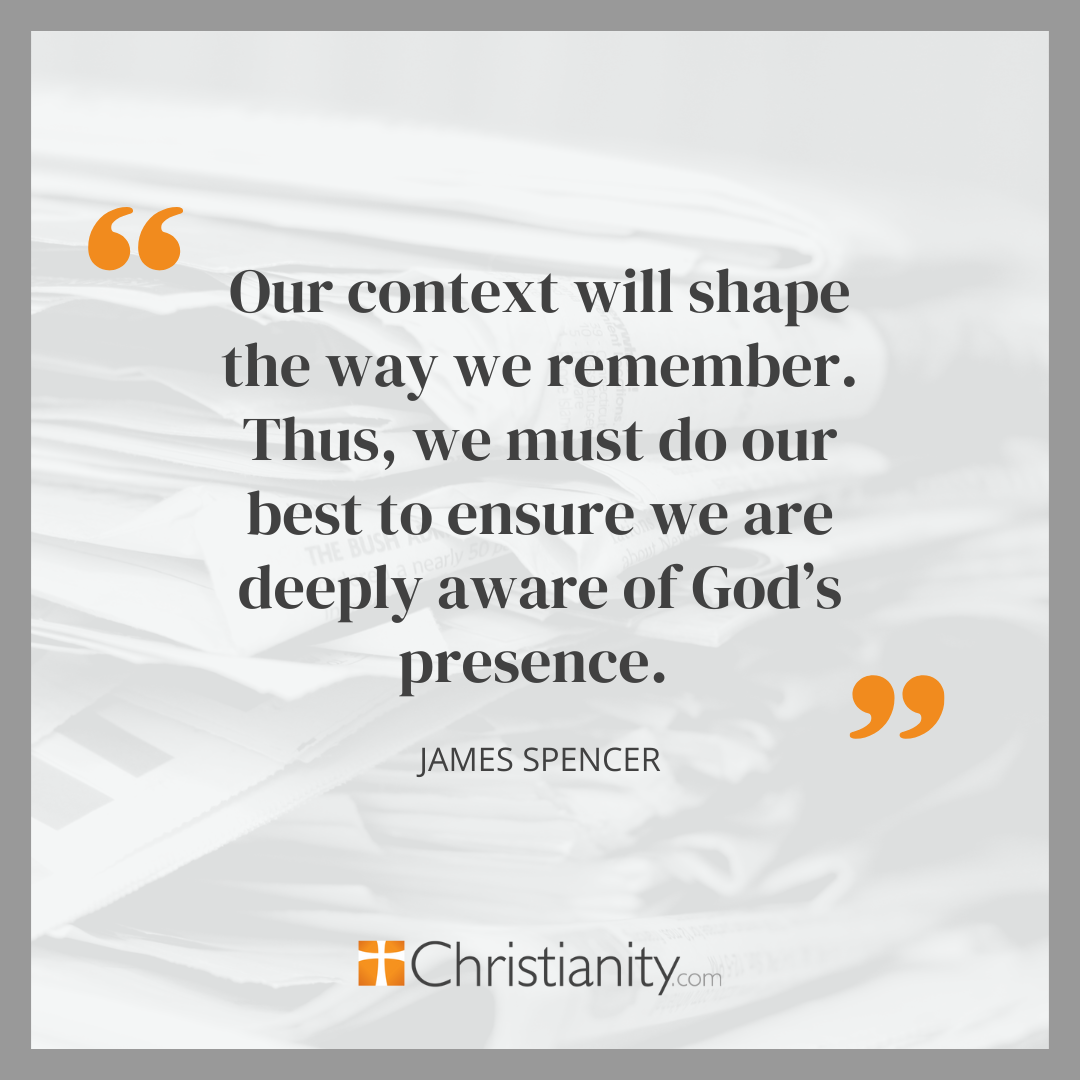I was training clients when the news began reporting that a plane had just hit the World Trade Center in New York. Initially, it wasn’t clear what had happened. The first plane hit the North Tower early in the morning, but—for about fifteen minutes—it simply wasn’t clear what had happened. After the second plane hit the South tower, it became clear that this was not an accident, but an attack.
In the aftermath of 9/11, there was a mixture of fear, confusion, mourning, and heroism. While training clients the rest of that week, I was asked more than once why God would allow such a tragedy. Living in Chicago at that time was tense. There was concern that the World Trade Center wasn’t the only target. While most of the people I knew continued to do what they’d always done, they expressed a level of anxiety they hadn’t felt prior to the attacks. September 11th changed things.
As God’s people look back on September 11th, we should certainly be mourning with and praying for those who lost loved ones, suffered injury, or were otherwise adversely impacted. Yet, we also need to consider the events of September 11th from a theological perspective. While the question of God’s goodness and the allowance of evil are important to answer, we also need to move beyond them to reflect on national fragility, selfless sacrifice, and the uncomfortable call to love.
9/11 Exposed Our National Fragility
Prior to 9/11, Pearl Harbor was the only event in recent memory that would offer even a hint that the United States was vulnerable to attack. Our geographic distance from rival nations and terrorist groups continues to be a great advantage, even as advanced technologies have made the world smaller. Still, September 11th stripped away any illusion that we, the United States, are invulnerable. Unlike the kingdom of God, the U. S. can be shaken (cf. Heb 12:28).
The fragility of the United States is not a fatal flaw. It isn’t a reason to abandon our nation or to become callous about government. Instead, it should be an impetus for us to be the church—to build up the body of Christ for the sake of the world. Though it is certainly appropriate for God’s people to seek justice, push for political reforms, or otherwise work to strengthen our nation, we cannot forget that the world needs the church—it needs to see the hope, peace, and courage only Christ can provide.
We Witnessed the Selfless Sacrifice of First Responders
While it is right for us to recognize the fragility of our nation, we cannot neglect its inherent strength. Despite the threat of imminent collapse, fire, and smoke inhalation, firefighters, police officers, paramedics, and other first responders put their lives on the line for others. These men and women exhibit what essayist Nassim Taleb calls “soul in the game”—they put themselves “at risk for others” and showed themselves willing to “sacrifice something significant for the sake of the collective.”
When we look back on these first responders—and those who continue to respond to other tragedies—we need to recognize that the United States has the capacity to shape its citizens for good. Political commentator George Will is right to suggest,
“Men and women are biological facts. Ladies and gentlemen—citizens—are social artifacts, works of political art. They carry the culture sustained by wise laws and traditions of civility. At the end of the day, we are right to judge society by the character of the people it produces. That is why statecraft is, inevitably, soulcraft.”
Surely, “statecraft” is not the only influence that produces people willing to sacrifice for others. Yet, we should not dismiss the influence of the United States and its culture as a formative influence.
What does that mean? Think of it like a Lite-Brite—a light box allowing someone to create a glowing picture by punching multicolored pegs through dark paper placed over the light. The source of the light is always the bulb behind the paper. The pattern created by the multicolored pegs allows some light to escape while keeping much of it hidden behind the dark paper.
In the case of the United States—or any other nation—a pattern is created that allows the light of God’s goodness and glory to shine through in certain ways while blocking it in others. The actions we see—the selflessness, bravery, and compassion demonstrated by first responders—reflect the glory of God shining through the patterns of a culture.

While the analogy isn’t perfect, Christians need to remember that goodness is inextricably bound to the character of God. Goodness has a sort of claim on us—it isn’t something we determine, but something we recognize, ignore, conform to, or reject. Believers and unbelievers alike are subject to this claim. God’s revelation gives Christians unique insight into goodness. God discloses His way to us and empowers us to walk through the Holy Spirit. Unbelievers do not recognize the authority of Christ. Still, they often recognize goodness—even if they don’t understand it fully because they reject the Triune God—and act in alignment with it.
Though the more common questions that arise when reflecting on September 11th are related to God and evil, God’s people must remember that the nobility of humankind, exemplified by the first responders, points us toward God and goodness. The sacrifices of those who put themselves at risk for others gesture toward the selfless sacrifice of Jesus. It is a secondary witness to the glory of God, reflecting the pattern of Christ’s resurrection, ascension, and glorification that was born from the tragedy of the cross.
Why the Call to Love Feels Uncomfortable
Based on the Lite-Brite analogy, we might say that the evil perpetrated by the hijackers on 9/11 represents the dark cloth that obscures the glory of God. Their actions do not simply reflect their culture—humans bear individual responsibility for their actions. The point, however, is that we are effective storytellers. We—both individually and collectively—often convince ourselves that our stories are more complete than they actually are. By determining for ourselves what is good, true, and beautiful, we reject the Triune God. In doing so, we live against the grain of God’s order and—inevitably—create various forms of chaos.
As God’s people, we need to take care not to tell ourselves a story that distorts the character of God or revises the way of life he has called us to live. Reflecting back on September 11th, it can be easy to adopt an overly simplistic, nationalistic framing. To some degree, that’s appropriate because the United States, its citizens, and its way of life were targets. It is true that our nation was under attack, but it is also true that men made in God’s image were so deceived that they saw fit to commit an unspeakable act of destruction—to murder others made in God’s image.
My point is not that we shouldn’t seek justice. We should. Whatever you may think of the United States’ response, it is right for our governing authorities to pursue justice.
My point is that Christians must do the hard work of loving our enemies. We must practice the same sort of uncomfortable love that we see in our Savior, who called us to love our enemies (Mt 5:43-48; Lk 6:27-36; cf. Acts 7:60). In loving our enemies, we do not accept their wrongdoing or somehow exempt them from justice, but we refuse to allow their actions to determine our standard of conduct. We do not love others because we seek some quid pro quo relationship (Mt 5:46-47; Lk 6:32-36), but we seek to conform ever closer to the image of God in Christ.
Commenting on commemoration, sociologist and collective remembering expert Jeffrey Olick suggests that differences between commemorations across time are “not only a function of the politics of the present or of immediate historical precedents but also of the forms of media available in different moments.” Put simply, the way we remember the past is often conditioned by factors in the present. September 11th is no different.
As Christians pause to remember 9/11, we will do so from our present moment. Our context will shape the way we remember. Thus, we must do our best to ensure we are deeply aware of God’s presence. We must reorient our attention because the Triune God is infinitely more relevant than any other actor or factor we will ever encounter. Our theological convictions and disposition—our understanding of the way the world works—must inform our reflections on the tragedy of 9/11, leading us to be grateful that we have inherited an unshakeable kingdom, ready to see and explain the glory of God as we proclaim the gospel, and willing to love even those who oppose the Lord as we imitate Jesus Christ.
Photo Credit: Created by Chat GPT





